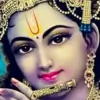With Draupadi as their wife and Krishna as their friend, the Pandavas demand from their uncle their half of the family inheritance. After much deliberation, they are given the forest of Khandavaprastha.
With the help of Krishna, they transform this forest into the prosperous kingdom of Indraprastha. With Krishna behind them, the Pandavas turn into a lethal force. Bhima, the mightest Pandava, kills Jarasandha, destroyer of Mathura, in a duel. And Yudhishtira, the eldest Pandava, earns the right to declare himself a sovereign king. Unfortunately, success goes to the head of the Pandavas. And while Krishna is away, they accept an invitation from the Kauravas to a gambling match.
There they gamble away everything " not just gold and cows, but also their newfound kingdom, their own liberty and even their wife.
This gambling match is an indicator of the collapse of dharma for it shows kings treating culture as property. They have forgotten why dharma was instituted and kingdoms established in the first place: to create extra material resources so that man can look beyond survival and look for meaning. That Krishna is not by their side when the Pandavas are gambling away everything indicates the lack of spiritual awareness. They become like Devas who lose Lakshmi.
Having managed to wrench away from the Pandavas everything they possess, the Kauravas, like Asuras, are consumed by megalomania. Instead of protecting the helpless, as kings are supposed to, they exploit the situation, like Rakshasas. Draupadi, gambled away by her five husbands, now a Kaurava slave, is dragged by her hair, brought to the gambling hall and disrobed in public. She demands justice, appeals to clemency, but no one comes to her rescue. Everyone hides behind the letter of the law. The spirit of dharma is totally forgotten as Draupadi screams in horror and raises her arms in utter helplessness.
PATTANAIK, DEVDUTT (2012-05-22). Seven secrets of Vishnu (Kindle Locations 1256-1257). Westland Publishing. Kindle Edition.






















